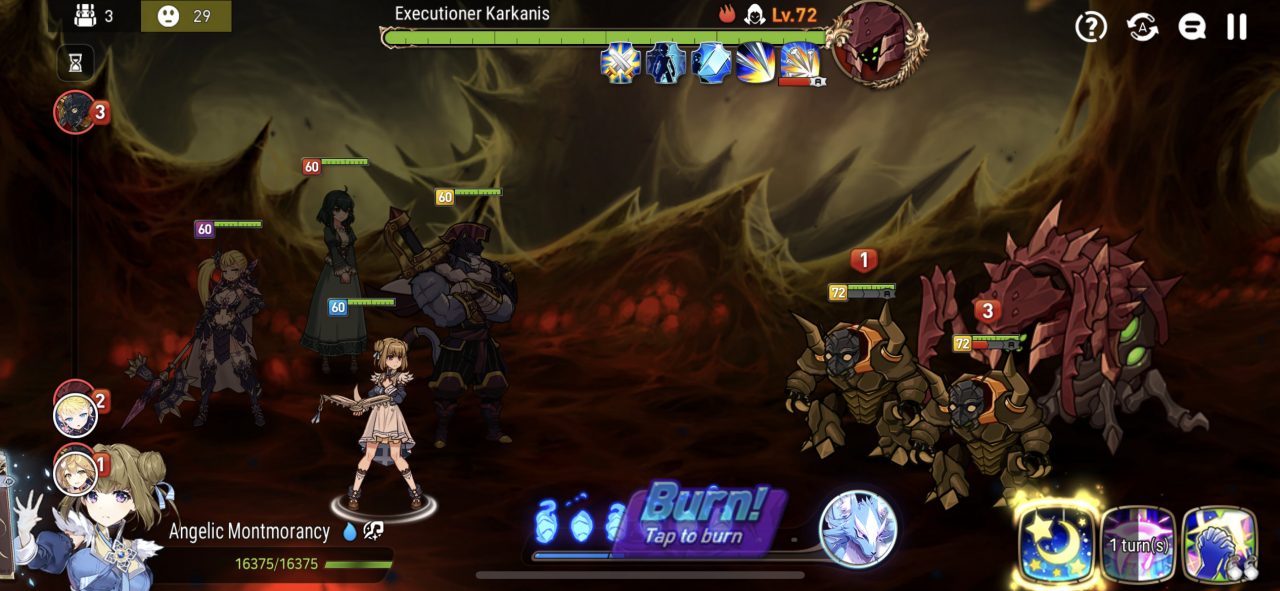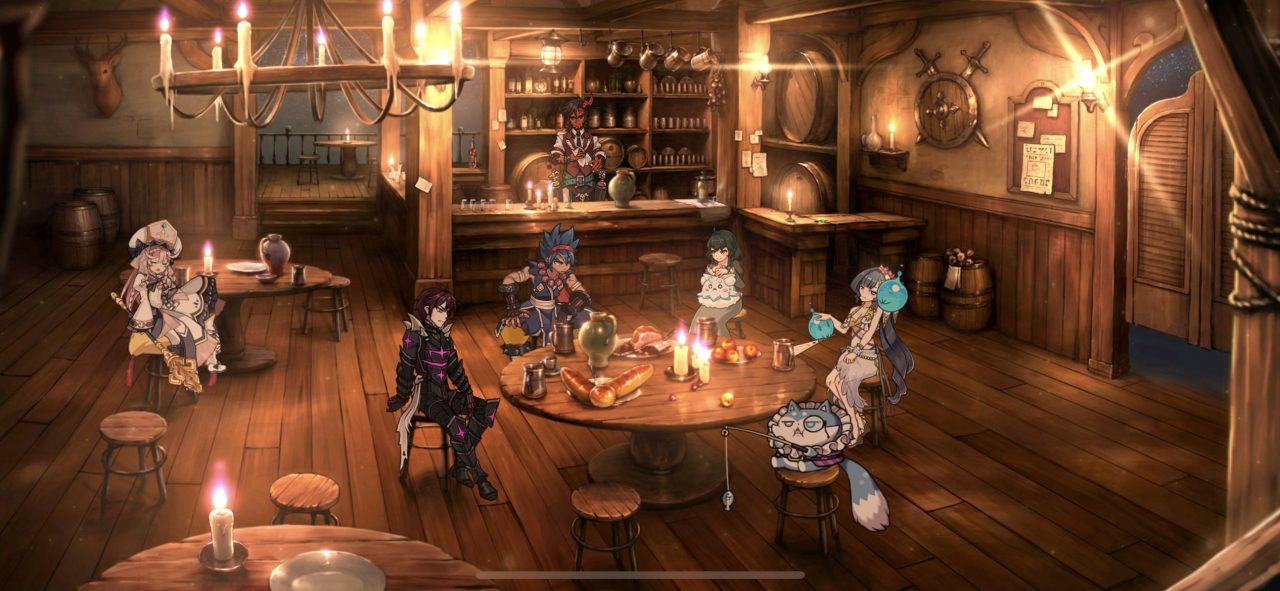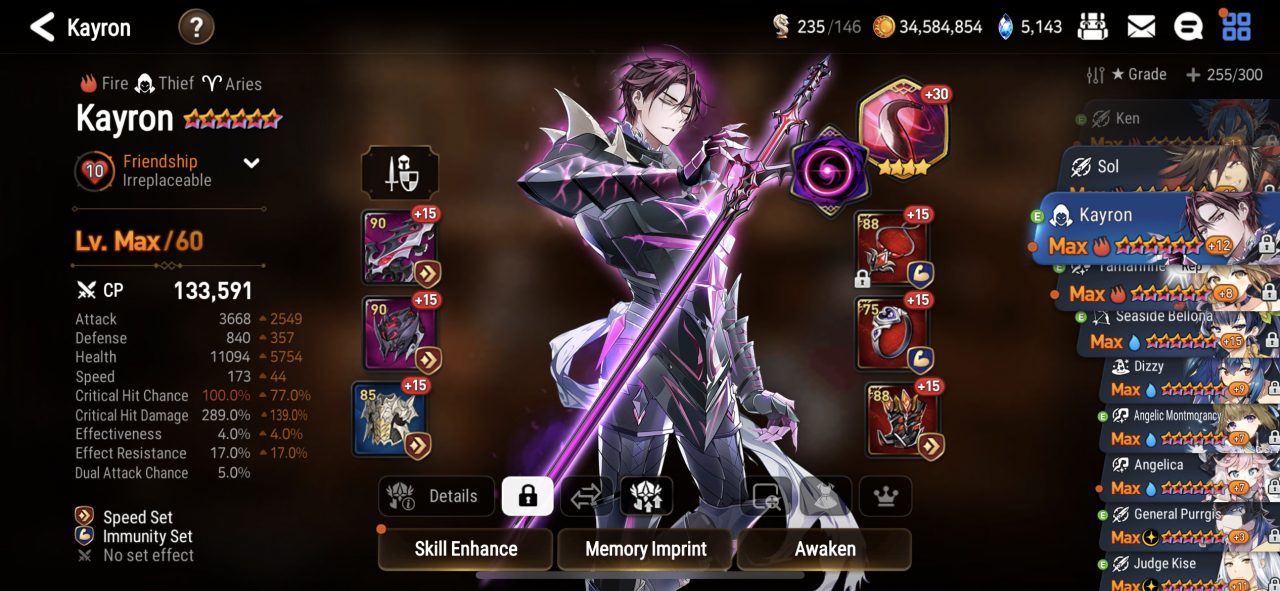What are some of the first things that come to mind when you think of mobile gacha games? Shallow gameplay, incessant power creep, and punishing summoning systems pretty much top the list for anyone even vaguely familiar with the genre. Some of the gaming industry’s worst practices are synonymous with gachas, and even the most respected gacha titles in the market can’t shake all the genre’s shortcomings.
Fire Emblem Heroes is still one of the biggest poster children for unbridled power creep despite Intelligent Systems’ improvements to the game following its release. Fate Grand Order distinguishes itself from its peers through excellent aesthetics and well-crafted narratives. But even after receiving six years of updates, its gameplay mechanics remain archaic, and its summoning system lacks many quality of life changes adopted by its contemporaries. Two steps backward almost always follow each step forward, and it’s almost impossible to find a title that doesn’t choose to die on one of these hills of gacha vices.
Epic Seven comes about as close to breaking the mold as I’ve ever seen. Although it does this at the cost of incorporating some gameplay mechanics better suited to an MMORPG than a mobile game, it proves an interesting if not worthwhile experience. Your mileage may vary, but the game’s appealing visuals, welcome summoning system, and sprawling amount of content make it worth taking a hard look at.
Epic Seven is a turn-based RPG in which you build teams of up to four heroes. Each hero is associated with one of five elements: earth, ice, fire, light, and dark. The latter two elements are vulnerable to each other, while the first three are strong or weak against one another in a rock-paper-scissors arrangement. Heroes also come in various classes. For example, thieves embody the archetype of high damage output but low survivability, and soul weavers fill the healer role while offering supporting abilities such as team resurrection. I recommend a balanced team of a tank, two damage dealers, and a healer for general PvE content. Still, the classes offer enough flexibility to support plenty of experimentation.
Every hero boasts two basic skills and an ultimate skill. While you may assume this skill system is shallow at first glance, the limited skill selection makes gameplay more cohesive and tight-knit. Every skill feels impactful, from basic skills to high-end ultimate abilities. Buffs and debuffs attached to most skills enhance this feeling. They often result in extreme damage and healing numbers that leave you supremely satisfied, and they can make lower-rarity heroes just as fun to use as five-star ones. For example, defense break, a common debuff, reduces a target’s defense by a massive 70%!

Sadly, Epic Seven‘s story is not its selling point. You play as Ras Elclare, a human avatar of a faction of benevolent gods. Thanks to certain malevolent gods, Ras’ world is trapped in a cycle of constant destruction and rebirth. He journeys to end this vicious cycle once and for all. Unfortunately, the game’s meager writing and unwillingness to see certain plot twists through mar the story. After its introductory chapters, the game wraps consequential plot points in a noticeable layer of armor it refuses to shed, making the journey feel more like a long tutorial than an engaging piece of fiction. The campaign improves as you progress, but by and large, Epic Seven‘s narrative goes in one ear and out the other.
Fortunately, you can sink your teeth into a lot more than the campaign. On the PvE end of things, you can dive into standard material/equipment grinding maps. Or you can explore sprawling labyrinths with a clever morale system that keeps you from steamrolling the entire map in one go. If you’re looking to test your team to its limit, you can try to clear Automaton Tower and Abyss, which handsomely reward you if your team is up to the task. Side stories — temporarily available sidequests — provide additional story content, though they amount to little more than snippets of lore and some extra loot.
Arena mode provides most of the game’s PvP content. In arena, you battle against other players’ teams to climb the ranks. You can also battle other players in real-time in the world arena. After joining a guild, those who prefer teamwork can participate in guild wars, a slightly modified version of arena with rarer rewards.
The absence of significant power creep among new heroes helps keep gameplay balanced. In fact, many of the most powerful characters to this day have been available since close to release. Generally speaking, the design philosophy behind new heroes focuses on breadth and emphasizes new combat styles or fresh takes on already-existing ones.

Epic Seven has you covered even if you enjoy the hero-collecting aspect of gacha games over their actual gameplay. You earn skystones, the game’s premium currency, through quests, campaign progression, and in-game events. You mainly use skystones to acquire covenant bookmarks, a currency you can spend to summon new heroes. Though you can trade skystones for bookmarks directly, players seeking to maximize efficiency may want to use skystones to refresh the secret shop on the home screen. By doing so, you can usually acquire bookmarks at a more favorable rate. The game also incentivizes you to refresh the secret shop by giving each refresh a chance to yield mystic medals. You can use mystic medals to obtain rarer light and dark heroes, though doing so significantly dents your reserves of gold.
The game’s normal banners — events that offer boosted odds of summoning certain heroes — are similarly generous. Though they only offer a 1% chance to summon a specified five-star hero (that banner’s “rate-up” hero), you’re guaranteed to summon the hero after 120 summons. What’s more, when you net a five-star hero, the banner ensures the hero you summon is its rate-up hero. As a result, you no longer need to worry about summoning pity breakers, unwanted five-star heroes that reset enhanced summoning odds. With just a bit of research on banner rotations and three to four weeks of diligent saving, you can grab any five-star hero that isn’t light or dark.
It’s a shame that the game locks five-star light and dark heroes behind more demanding summoning systems. You’ll have to save currency for months to obtain these heroes. Fortunately, they’re only relevant in PvP, and completing the campaign rewards you with one of six powerful, meta-relevant light and dark five-star heroes. So you’re not entirely out of luck if you’re interested in five-star heroes of the light or dark variety.
Epic Seven hits the brakes on the fun train once you get to its hero leveling and upgrade systems. Leveling demands extensive grinding, and you can take very few shortcuts to dodge this bullet. You also need to promote heroes to six stars to reach their maximum potential, which requires sacrificing five other five-star heroes. The game offers heroes designed for sacrifice, so you don’t need to burn through all your precious summons to obtain six-star ones. However, these sacrificial heroes mostly come in two, three, or four-star rarities, meaning you have to grind to promote them to five stars first.

Leveling your hero isn’t enough; you need to equip them with gear too! Every character comes with six gear slots, and each piece of gear boasts a main stat and, depending on the gear’s rarity, up to four substats. Main stats cap out at a fixed value once you fully upgrade the piece, but substats can fluctuate wildly. Some substats significantly enhance your heroes, while others barely make a difference.
As you can imagine, you have to go through hundreds of pieces of gear to find equipment that will keep you competitive in higher-rank PvP. Getting this loot translates to hundreds if not thousands of runs through hunts — gear-grinding maps that’ll occupy most of your game time. Developer Super Creative tried to ease the grind over the years, but its “fixes” are often little more than convoluted workarounds with their own grinding requirements and have become something of a trademark of the game.
The game occasionally hands out gear with favorable substats that will suffice for most PvE content and lower ranks of PvP. Nonetheless, the repetitive loop of gear grinding overwhelmingly consumes the endgame and remains a real drain. Once I figured out the initial puzzle of optimizing a team for a hunt, my quest to obtain better gear led me to keep my phone running 24/7 with the game on auto-repeat. As you can imagine, this quickly killed not only my phone’s battery life, but also some of my interest in the game.
The game’s striking visuals are far superior to those in typical mobile titles and help make up for some of its gameplay flaws. In-game character models resemble their splash art instead of simple chibi sprites, and character equipment screens are all animated. Higher-rarity heroes boast custom animations for their basic skills and over-the-top, immaculately choreographed cutscenes for their ultimate. While watching these cutscenes, I often felt like I was in the middle of the latest action shonen on Funimation. Developers usually reserve this level of detail for PC and console titles, but Super Creative pulled out all the stops for Epic Seven‘s graphics.
I would’ve deemed Epic Seven nothing short of a perfect mobile game if it had come out a couple of years earlier while I was grinding legendary drops in Borderlands 2. In many respects, it’s the cream of the crop in the mobile market — especially when it comes to its aesthetics, combat, and fair monetization. But its design choices, such as the excessive grinding it puts you through late game, take away from the shine. Super Creative doesn’t alleviate this particular shortcoming by dancing around it with nearly every update. Though Epic Seven is worth a download, you’re going to have to try it for yourself to see if it’s worth the space on your phone.


